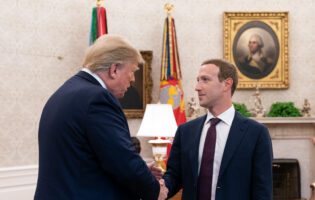Smoot-Hawley, Havana Charter, or McKinley Tariff?
Historical Analogy and the Future of U.S. Trade Policy
Speaker: Edward Knudsen, DAAD/AGI Research Fellow
Moderator: Peter Rashish, Vice President and Director of the Geoeconomics Program, AGI
Commentator: Beth Baltzan, Counselor for Trade and Investment, United States Trade Representative
References to the past are used to inform, legitimate, and contest U.S. trade policy decisions. Exploring economic attitudes in the 1945-2021 period reveals how policymakers have traditionally understood the legacy of interwar protectionism in the United States, especially the infamous 1930 Smoot-Hawley Tariff. Combining archival research with expert interviews, this session will provide insight into how and why we “remember” certain events and not others—as well as what effect this has had on policymaking. To examine the relationship between political change and memories of economic history, firsthand experience from the Biden administration will help to explain how the legacies of the Havana Charter and International Trade Organization inform the administration’s idea of a “worker-centered trade policy.” To conclude, this dialogue will examine the historical precedents for Donald Trump’s proposed trade policies and assess whether and how such analogies are useful.

Edward Knudsen is a doctoral researcher in international relations at the University of Oxford, a DAAD/AGI Research Fellow at the American-German Institute, and an Affiliate Policy Fellow at the Jacques Delors Centre in Berlin. His research focuses on the political economy and economic history of the United States and Europe in the twentieth century, specifically international sanctions, organized labor, and the role of memory in international economic policy. Previously, he worked for the U.S. and the Americas Programme at Chatham House in London. He holds a Master’s in International Political Economy from the London School of Economics and Political Science and a Bachelor’s degree with majors in History and Economics from the University of Wisconsin-Madison. He has also previously worked for Chatham House, the Centre for International Security in Berlin, and advised the S&D Group in the European Parliament.
Beth Baltzan serves as Counselor for Trade and Investment. Ms. Baltzan previously served as an attorney at USTR from 2003 to 2009. In 2009, Ms. Baltzan joined the Office of International Affairs at the Public Company Accounting Oversight Board, working on oversight in the wake of the financial crisis. In 2012, the PCAOB detailed Ms. Baltzan to the Senate Permanent Subcommittee on Investigations, where she investigated banking practices. Ms. Baltzan then served as Democratic Trade Counsel for the House Ways and Means Committee from 2012 to 2016. After returning to USTR to work on litigation matters, in 2017 Ms. Baltzan formed her own trade consultancy practice. She was also a fellow at the Open Markets Institute. Ms. Baltzan received her J.D. from the Georgetown University Law Center. She received her Bachelor of Arts in International Relations, with honors, from Stanford University.
Event Summary
This AGI webinar examines the role that historical memory and analogy play in debates about U.S. trade policy. Drawing from research into the relationship between memory and economic policy, the session explores how political and economic actors selectively frame history to justify policies, legitimize ideologies, and influence domestic and international systems.
The field of societal memory explores how specific memories can become hegemonic and how memory operates in the field of economic history. Over time, certain historical narratives solidify into cultural “common sense,” making it increasingly difficult to challenge the accuracy or relevance of historical analogies. Such narratives often elevate elite perspectives while sidelining others, shaping not only national policy debates but also global economic systems. There are two distinct ways policymakers use history: the “contest of memory” and the “contest of analogy.” The contest of memory involves constructing a historical narrative that aligns with political objectives, such as the idea that certain past policies led to economic success or failure. The contest of analogy, on the other hand, involves applying historical parallels to justify current policy actions. These approaches can reflect three motivations: a genuine belief that history offers actionable lessons, a heuristic need to simplify complex issues, or a cynical deployment of history to rationalize pre-decided policies.
The Smoot-Hawley Tariff Act of 1930—and the ways in which references to it are still deployed today—exemplifies this phenomenon. Initially debated earnestly in the 1940s and 1950s, its memory became increasingly politicized and distorted by the 1970s through the 1990s. Policymakers across the political spectrum invoked Smoot-Hawley to warn against protectionism and advocate for trade liberalization, framing it as an unmitigated disaster that deepened the Great Depression and contributed to World War II. This narrative reached its zenith in debates over NAFTA, where it was used as a rhetorical tool to argue that free trade was essential to American identity. However, the potency of this analogy began to decline after 2016 as the free trade consensus began to break down. This took a bipartisan form, as President Trump tried to shift the conversation to a new historical reference point of the McKinley era while the Biden administration invoked the legacy of the International Trade Organization and the Havana Charter.
Trump’s admiration for President William McKinley—whom he called “highly underrated”—signaled a break from the postwar liberal trade consensus. McKinley’s high-tariff policies, which Trump referred to as a model for America’s “wealthiest era,” became a central historical justification for his administration’s protectionist agenda. Trump’s pick for commerce secretary in his second administration, Howard Lutnick, went even further, framing the late nineteenth century as the apex of American economic strength, unburdened by income taxes and reliant on tariffs for revenue. This selective glorification of a particular economic past is not unique to McKinley.
Another such figure who has been selectively and often reductively remembered is Adam Smith. Smith, often simplified as a champion of free markets, was deeply critical of monopolies and their exploitative practices. His views align more closely with policies that balance market competition and labor protections than with the laissez-faire economics often attributed to him. The tension between economic elites and working people has also been a recurring theme in the historical memory of U.S. trade. Cordell Hull, Franklin D. Roosevelt, and the architects of the postwar Bretton Woods system understood the importance of economic security for democratic stability, and the International Trade Organization (ITO), envisioned as the third pillar of Bretton Woods, sought to embed labor protections and environmental standards in global trade rules. However, this vision was never fully realized, as the ITO was abandoned in favor of the standalone General Agreement on Tariffs and Trade (GATT), which lacked similar provisions. This shift away from comprehensive labor and environmental protections, much like the oversimplified readings of Smith or the romanticized invocation of McKinley, reveals how historical memory and analogy can privilege certain narratives over more nuanced or inclusive visions for the global economy.
There are broader implications of these constructed historical narratives. Historical memory is not merely an academic exercise but a political tool. The persistence of the Smoot-Hawley analogy, despite its contested meaning, demonstrates how certain narratives become proxies for larger ideological battles. For example, during the 2008 financial crisis, policymakers invoked Smoot-Hawley to warn against protectionism, even as scholars challenged its historical impact. Similarly, Trump’s embrace of the McKinley era reflects not only a rejection of free trade but also a broader critique of postwar U.S. hegemony.
It is increasingly important to question who controls historical narratives and how these narratives shape policy decisions. The imbalance between the negative memory of Smoot-Hawley under Herbert Hoover, overshadowed by the more positive legacy of liberal economic policies under Franklin Roosevelt, perfectly exemplifies a selective reading of history shaped by political agendas. Tariffs and trade policies should not solely protect industries’ interests but also promote fair competition and democratic values. The race-to-the-bottom dynamics of global trade undermine these principles, and policymakers must rethink the role of tariffs in fostering economic security.
Thus, the future of U.S. and transatlantic trade policy will depend not only on economic conditions but also on which historical analogies dominate public and political discourse. Whether invoking Smoot-Hawley, the Havana Charter, or the McKinley Tariffs, policymakers will continue to use history as both a tool and a battleground in shaping the direction of trade and democracy.
This event is supported by the DAAD with funds from the Federal Foreign Office.






